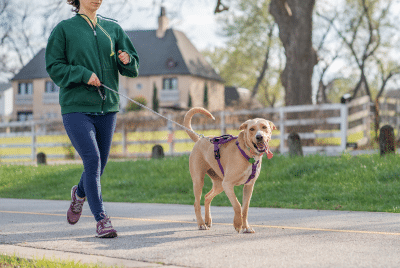4 Remarkable Ways Pets Improve Your Health

4 Remarkable Ways Pets Improve Your Health
We love pets for the enjoyment and companionship they bring to our lives. Their antics brighten our day, and their presence in our beds at night is reassuring, even if a bit crowded. But pets are more than just companions or entertainers – they make us healthier. Let’s take a look at the different ways pets improve our health.
Pets Improve Social Interactions
If I go to a party and confess I’m a veterinarian, you can bet everyone in the conversation will pull out their phone and start sharing their pet’s photo gallery. Pets are the perfect icebreakers in a group of strangers. For the elderly, walking the dog helps maintain social contact with friends. Adolescent girls benefit from pet ownership because they are more connected to their families and the local community through their pet. And, as we learned during the COVID-19 pandemic, dog walking offered a safe, socially-distanced way to socialize. In particular, pets played a substantial role in the lives of isolated older adults during this time.
Pets Decrease Dangerous Behaviors
Pets depend on their human, and we are aware of our essential role in our pet’s wellbeing. This relationship can modify dangerous behaviors in humans. Take smoking for example, people might not give up smoking because their physician recommends it, but they might do so because of the risks of secondhand smoke on their pet.
Pets Promote Healthy Behaviors
Studies show pet owners participate in more physical activity than non-pet owners. The opportunity to walk a dog during the COVID-19 lockdowns plainly illustrates the health and quality of life benefits of pet ownership. Service dogs also play a vital role in the health and wellbeing of their owners. Military veterans with PTSD that were assigned a service dog showed decreased signs of PTSD. These service dogs also helped the veterans remember to take prescription medications.
Pets as Therapy
The service dogs’ effect on veterans is a great example of animals as therapy, and we see the same calming effect in other studies. For example, owning a pet was associated with a decreased risk of hypertension in a large study of Americans. Walking the family dog improved motor skills in children with cerebral palsy. Animal-assisted interactions also improve health in hospitals, nursing homes and other health care facilities. The presence of a dog provides patients with a sense of comfort and normality in an unfamiliar and stressful environment such as a hospital.
The best part: you don’t even need a prescription to get one!

































